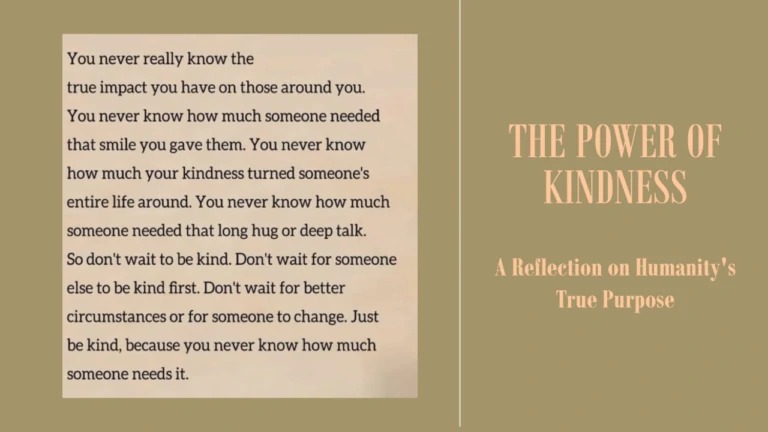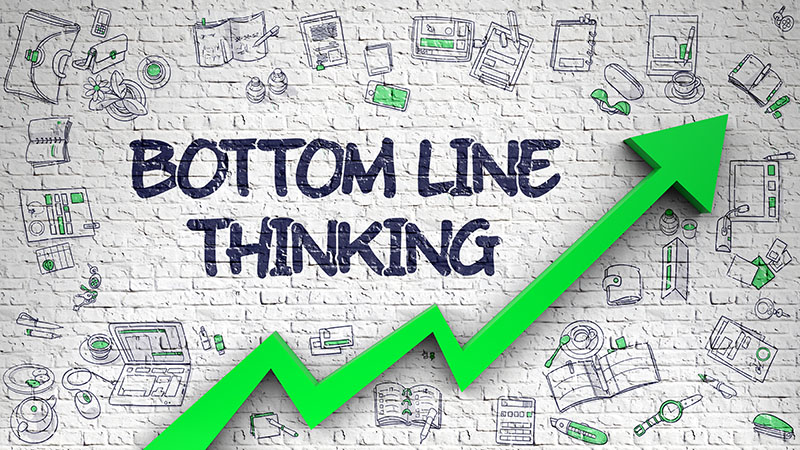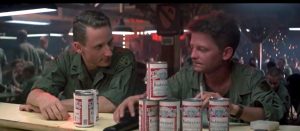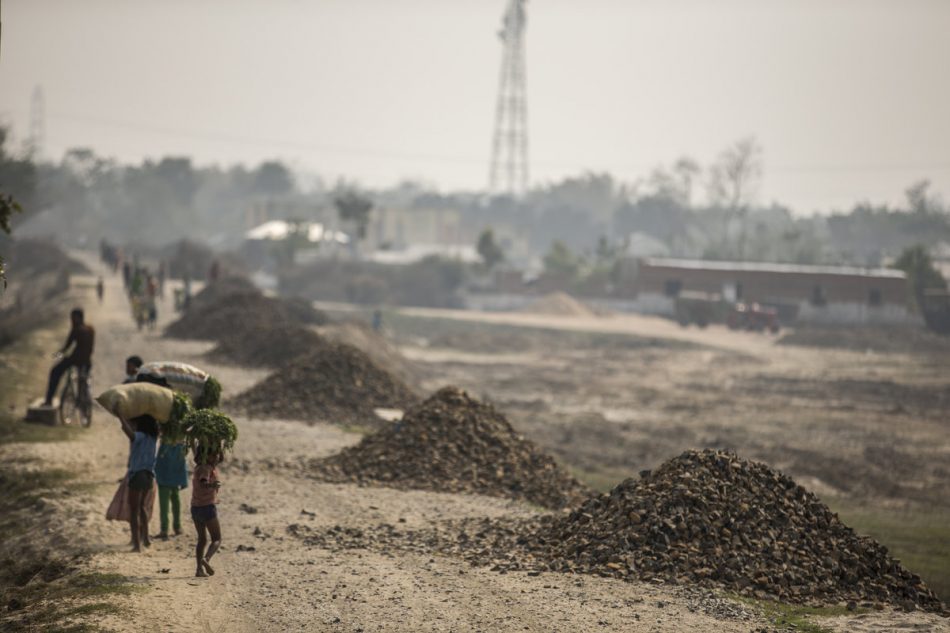

A true friend sees the first tear.
Catches the second
and stops the third
The most important fact in a situation
The bottom line is that we need another ten thousand dollars to complete the project.
Cambridge Dictionary
Page Description
The Bottom Line’ explores justice, empathy, and resilience, reflecting on kindness, honesty, and the essence of staying humane in a complex world.
“The greatness of humanity is
not being human,
but is being humane.”
Mahatma Gandhi
The Essence of Humanity
Humanity’s true greatness lies not in being human but in being humane. A small gesture of kindness, a moment of compassion, or simply listening to someone’s story can make an immense difference.
This page reflects on the essence of being humane in the face of injustice, dishonesty, and systemic failures. It explores the necessity of understanding, empathy, and action when dealing with situations that challenge our core values. From the importance of open dialogue to confronting the darker sides of justice, we delve into the complexities of integrity, morality, and our shared human experience.
Through real-life examples, thought-provoking insights, and inspiring stories, we aim to highlight why it is crucial to uphold honesty, transparency, and compassion in our interactions and systems. The bottom line? Humanity thrives when we don’t lose sight of what makes us truly human.
De Kern van de Zaak
De ware grootheid van de mensheid ligt niet in mens-zijn, maar in menselijkheid. Een klein gebaar van vriendelijkheid, een moment van medeleven of simpelweg luisteren naar iemands verhaal kan een enorme impact hebben.
Deze pagina staat stil bij de essentie van menselijkheid in het licht van onrecht, oneerlijkheid en systemische tekortkomingen. Het onderzoekt de noodzaak van begrip, empathie en actie wanneer we worden geconfronteerd met situaties die onze kernwaarden op de proef stellen. Van het belang van open dialoog tot het onder ogen zien van de donkere kanten van rechtvaardigheid, duiken we in de complexiteit van integriteit, moraliteit en onze gedeelde menselijke ervaring.
Aan de hand van waargebeurde voorbeelden, prikkelende inzichten en inspirerende verhalen benadrukken we waarom het cruciaal is om eerlijkheid, transparantie en compassie te bewaren in onze interacties en systemen. De kern van de zaak? De mensheid floreert wanneer we niet uit het oog verliezen wat ons écht menselijk maakt.
Being humane, being truly human.
A small human gesture.
Being kind.
The bottom line
Being able to discuss something, in a difficult situation, tell his story is part of being human.
It is necessary to be able to understand what is going on and if possible to be understanding, to show sympathy or empathy or compassion. We can still talk, can’t we?
The bottom line
Iets bespreekbaar kunnen maken, in een moeilijke situatie, zijn verhaal kunnen vertellen hoort bij het mens zijn.
Het is nodig dat men kan begrijpen wat er gaande is en zo mogelijk begrip op te brengen, sympathie of empathie te tonen of compassie te hebben. We kunnen nog steeds praten, toch?

Casualties of war – talk with chaplain
We can still talk, can’t we?
Ethics = the science that develops critical reasoning methods to ascertain what is good and bad, just and unjust, responsible and irresponsible, humane and demeaning.
In short: everything that belongs to human responsibility.
With the aim of seeking the most humane solution.
Ethiek = de wetenschap die kritische redeneermethodes ontwikkelt om na te gaan wat goed en slecht is, rechtvaardig en onrechtvaardig, verantwoord en onverantwoord, menswaardig en mensonwaardig.
Kortom: alles wat behoort tot de menselijke verantwoordelijkheid. Met als doel te zoeken naar de meest menswaardige oplossing.
1 Honesty is sometimes one of the weakest links in our society,
as emphasized in Jonathan Roberts’ Harvard Commencement in 2017.
A few line from his Harvard address:
The authenticity of others pain
- in economics we learned to quantify and dehumanize suffering,
- we learn that poverty, inequality, unemployment are unavoidable,
- that so long as we reach equilibrium people who live on pennies a day are somehow better off,
- in social studies and sociology we learn to treat others suffering as an academic exercise
to ponder their pain from a distance, - we critique structural inequality and oppression.
Excerpt from A beautiful speech by Jonathan Roberts | Harvard Commencement 2017
De echtheid van andermans pijn
- In de economie leerden we lijden te kwantificeren en te ontmenselijken,
- We leren dat armoede, ongelijkheid en werkloosheid onvermijdelijk zijn,
- dat zolang we een evenwicht bereiken,
mensen die leven van weinig geld op de een of andere manier beter af zijn, - in sociale studies en sociologie leren we het lijden van anderen te behandelen
als een academische oefening om op afstand over hun pijn na te denken, - bekritiseren we structurele ongelijkheid en onderdrukking.
Please enjoy the speech and the transcript A humbling experience
2 The darker side of justice
It is inherent to justice that aberrations can and do occur, such as Diederik Stapel’s ‘Science Fraud’ (part 2 of the website).
Diederik Stapel’s ‘Science Fraud’ is outstandingly described in the New York Times article The Mind of a Con Man.
The example of Bernie Madoff is a variant of Diederik Stapel’s conman, a 65 billion dollar fraud.
It is hard to believe that this is possible.
– – – – –
One cannot imagine it.
In a simple black and white situation, one can create an image on paper that is the exact opposite of the reality known by everyone.
In other words, you can lie to your face and deliberately destroy a person’s life.
Patented deception sometimes becomes the norm.
The Liam Allan case is a good example.
The Duke Lacrosse Case
The Post Office Wrongful Convictions Scandal are two remarkable other simple black and white examples.
The Post Office Wrongful Convictions Scandal are two remarkable other simple black and white examples.
– – – – –
One cannot imagine that there are people who are so alienated from the reality of life.
They behave in such a way that one can say they are hardly human anymore.
Sometimes you can say they are people without conscience.
As already mentioned on the first web page.
They belong to the entities of justice but do nothing but fool people.
They shamelessly drag the profession and the trade through the mud, making fools of themselves and dragging others into their wrong practices.
Patented nutcases. It is a justice paradox.
– – – – –
It is essential to dwell on such a observation. In such a situation, it is necessary to have a human conversation and to do what is necessary.
You have to do what you have to do. You cannot fool someone in order to ruin their life.
– – – – –
The bottom line is that it is open to discussion that there is something wrong with the justice system itself.
The integrity of the justice system. That there is a transparent attitude. An honest attitude, a conscience, where people can be quite natural. Justice is not an island, it is part of society. A dossier cannot be a façade for reality, but a reflection of reality.
– – – – –
Sometimes you have a situation where you notice that you are dealing with nonsense data, which cannot be used.
Sometimes you think for a moment and notice that you’re dealing with a strange twist, and so on.
What do you achieve when you encapsulate yourself in strange notions like:
I’m only a cog and Pilate washes his hands with the result that everything ends badly?
It’s about a normally functioning justice system in the first place, making it clear what’s really going on.
– – – – –
If something happens like: whose bread one eats, whose word you speak, with the result that someone’s life becomes a mess.
You cannot just look the other way and do nothing when someone of good character gets into trouble for no reason, cause or motive.
The Samaritan of the day, in the quiet and in the shadows a little humanity is only natural.
What 24 horses could not do was the gentle hand of the diplomat (The Magdeburg hemispheres).
When you belong to the establishment, you have to have the guts to tell people what to do. The soft core of human values is important. The virtue in society. The model must not become a mess. That we keep talking to each other. A sincere commitment to the people around us. Fighting harder that we can keep this beautiful place here on earth. Go the extra mile.
When you see the reality of life and are confronted with it, you are touched by what is happening and you share in the pain and do not lapse into foolishness and unworldly behaviour.
Het is onlosmakelijk verbonden met justitie dat er aberaties zich kunnen en zullen voordoen, zoals de wetenschapsfraude door Diederik Alexander Stapel (deel 2 van de website) ‘Science Fraud’.
Het fenomeen wordt uitmuntend beschreven in het artikel in de New York Times The Mind of a Con Man.
Het voorbeeld van o.a. Bernie Madoff, een variant van de fraude praktijken van Diederik Stapel, een fraude van 65 miljard dollar.
Het is niet te geloven dat dit mogelijk is.
– – – – –
Men kan het zich niet voorstellen. In een eenvoudige zwart-wit situatie kan men op papier een beeld creëren die precies het tegendeel is van de werkelijkheid die door iedereen gekend is. M.a.w. men mag liegen dat men zwart ziet om bewust het leven van een mens kapot maken. Gepatenteerd bedrog wordt soms de norm.
The Liam Allan case is een goed voorbeeld.
The Duke Lacrosse Case en The Post Office Wrongful Convictions Scandal zijn twee andere merkwaardige eenvoudige zwart-wit voorbeelden.
– – – – –
Men kan het zich niet voorstellen dat er mensen zijn die zo vervreemd zijn van de werkelijkheid van het leven. Ze gedragen zich zo dat men kan zeggen dat ze nauwelijks nog mens zijn. Soms kun je zeggen het zijn mensen zonder geweten. Zoals reeds vermeld op de eerste web pagina. Ze behoren tot de entiteiten van justitie maar doen niets anders dan mensen voor de gek houden.
Ze trekken de beroepsgroep en het vak schaamteloos door het slijk, houden zichzelf voor de gek en sleuren anderen mee in de foute praktijken.
Gepatenteerde onnozelaars. Het is een justitie paradox.
– – – – –
Het is essentieel om met zo’n vaststelling stil te staan. In zo’n situatie is het nodig dat er een menselijk gesprek ontstaat en dat men doet wat nodig is. You have to doe wat you have to do. Het kan natuurlijk niet dat je iemand voor de gek houdt om zijn leven te kunnen kapot maken.
– – – – –
De bottom line is dat het bespreekbaar is dat er iets fout is met het justitie systeem zelf. De integriteit van het justitie systeem. Een eerlijke houding, het geweten, waar mensen heel gewoon kunnen zijn. Justitie is geen eiland, het is onderdeel van de samenleving. Een dossier kan geen façade zijn voor de werkelijkheid, doch een weergaven van de werkelijkheid.
– – – – –
Soms heb je een situatie waar je merkt dat je te maken hebt met onzin gegevens, die dus niet kunnen gebruikt worden.
Soms denk je even na en merk je dat je te maken hebt met een rare kronkel, enzovoort.
Wat bereik je wanneer je je inkapselt, in rare denkbeelden als: ik ben maar een radertje en Pilatus wast de handen met het gevolg dat alles verkeerd afloopt.
Het gaat in de eerste plaats over een normaal functionerend justitie systeem waardoor het duidelijk wordt wat er werkelijk aan de hand is.
– – – – –
Als er zich iets voordoet zoals: wiens brood men eet, wiens woord men spreekt, met het gevolg dat het leven van iemand een puinhoop wordt. Je kunt niet zomaar de andere kant op kijken en niets doen wanneer iemand met een goed karakter, zonder reden, aanleiding of oorzaak in moeilijkheden komt. De Samaritaan van de dag, in de stille en in de schaduw een beetje menselijkheid is niet meer dan normaal. Wat 24 paarden niet vermocht kon de zacht hand van de diplomaat (De Maagdenburgse bollen).
Wanneer je tot het establishment behoort moet je mensen wel durven zeggen waar het op staat. De zachte kern van menselijke waarden is van belang. De deugdzaamheid in de samenleving. Het model mag geen puinhoop worden. Dat we met elkaar blijven praten. Een oprechte toewijding met de mensen om ons. Harder knokken dat we dit mooie plekje hier op aarde kunnen behouden. Go the extra mile.
Wanneer je de werkelijkheid van het leven ziet en ermee geconfronteerd wordt, wordt je geraakt door wat er gebeurt en wordt je deelgenoot in de pijn en verval je niet in dwaasheden en wereldvreemd gedrag.fraude
To summarise
When you are dealing with a faulty justice system,
which commits abject errors,
you can expect this to be resolved correctly.
Against this background it is necessary to be able to speak to an honest person.
You have to do what you have to do,
because it happens that you are dealing with people with bad intentions,
Even for the very simple black and withe case of Liam Allan,
it is not normal what happened.
5 Do not make a mistake evil does exist in this world
“Few are those who see with their own eyes and feel with their own hearts.”
This, explains why there are so many people chewing on and spitting trendy narratives!
“Weinigen zijn zij die zien met hun eigen ogen en voelen met hun eigen hart.”
Dit verklaart waarom er zoveel mensen zijn die trendy verhalen voorkauwen en uitspugen!

Children pass piles of stone ready for the re-paving on a road in Bihar, India.
You have to do what you have to do
Said of any task or obligation that one must undertake or go through with, especially when it is difficult, unpleasant, undesirable, inconvenient, etc.
6 Cooperation with evil
In the case of The Central Park Firve, we have a justice system that lends itself to doing blatantly wrong things to young teenagers!
Please listen thoughtfully to video 1 – Wrong destination to understand how mistakes are made.
Similarly, mistakes are made in the legal system…
It is like in the candid camera below, a single action somewhere by a single entity in the system is enough.
Someone asks for help and, in the end, gets the shock of his life!
The expression “The bottom line” typically refers to the most important or crucial points or outcomes of a situation or issue. It is often used in business or financial contexts, but can also be used more broadly in other areas of life. The key points associated with the expression “The bottom line” include:
The final result or conclusion: “The bottom line is that we need to increase sales to meet our targets.”
The essential or most significant aspects: “Let’s focus on the bottom line and address the key issues affecting our project.”
The financial or monetary outcome: “The bottom line of our quarterly report shows a decrease in profits compared to last year.”
The ultimate or decisive factor: “When making decisions, the bottom line is whether it’s profitable for the company.”
The overall summary or conclusion: “After evaluating all the factors, the bottom line is that we need to change our marketing strategy.”
The ultimate goal or objective: “The bottom line of our organization is to provide high-quality service to our customers.”
In general, “The bottom line” is a figurative expression that conveys the most important or fundamental aspects of a situation, often with a focus on financial outcomes or key results.
Trick Red Light Prank
22 mei 2011
Give the ones you love
Wings to fly
Roots to come back
and Reasons to stay
A kind word as part of daily life.